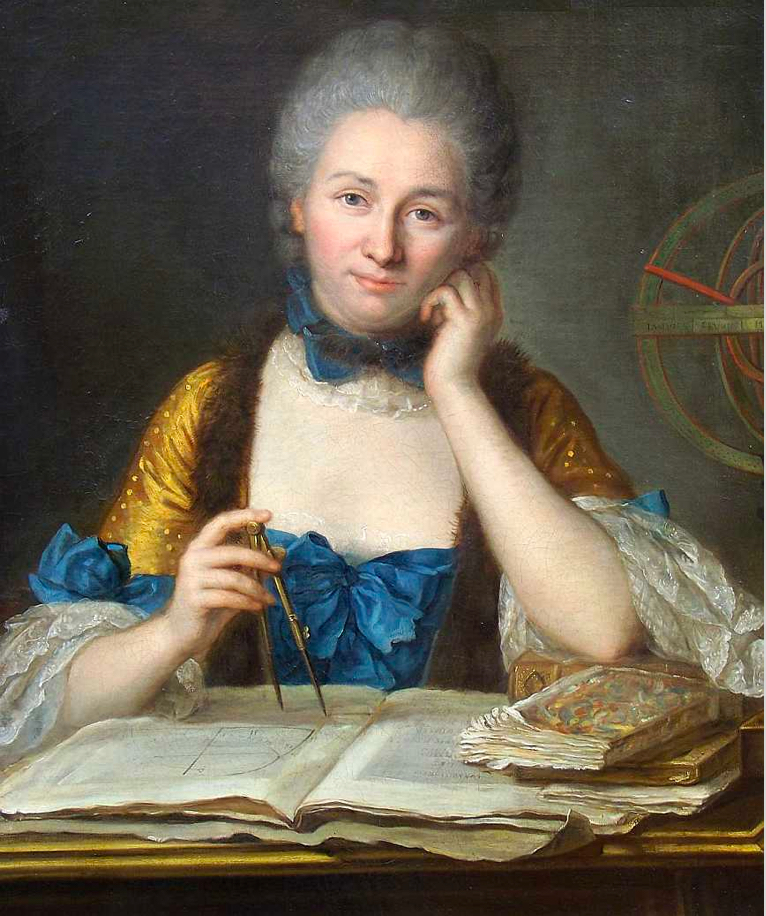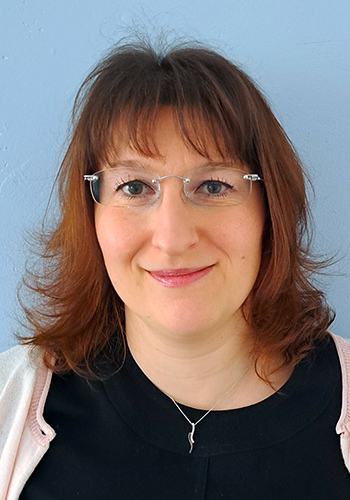Pourquoi la tech ?
Mon parcours dans le domaine de la technologie trouve sa source dans mon intérêt, dès le plus jeune âge, pour la compréhension du monde. Les sciences constituent des outils efficaces et passionnants pour expliquer notre environnement et développer des solutions afin de s’y épanouir au quotidien.
Votre parcours ?
Après avoir obtenu mon bac S, j’ai poursuivi mes études dans le domaine de la physico-chimie. J’ai eu l’opportunité de suivre des options dédiées à l’industrie de l’énergie, m’intéressant ainsi à leurs enjeux, fonctionnements et impacts sur la société et l’environnement. Ma curiosité s’est spécifiquement portée sur l’industrie nucléaire. J’ai eu la chance, via un doctorat CNRS Institut Physique Nucléaire Lyon/EDF, d’intégrer ce milieu en étant aiguillée par la bienveillance d’encadrantes universitaires impliquées et par des collaborations enrichissantes avec des personnels d’EDF, du CEA et de l’Andra.
Votre première expérience professionnelle dans la tech ?
À l’issue de mes études, j’ai naturellement orienté ma recherche d’emploi vers l’industrie nucléaire afin de poursuivre l’expérience entamée dans ce domaine. J’ai rejoint l’entreprise Orano au sein de la BU Démantèlement et Services en tant qu’ingénieur R&D dans le domaine de la gestion des déchets nucléaires.
Que faites-vous aujourd’hui et pourquoi ?
Après une petite quinzaine d’années d’un parcours professionnel riche et varié au sein d’Orano, et plus particulièrement de la BU Démantèlement et Services, j’occupe aujourd’hui le poste de Directrice des études et de l’innovation. Implantées sur divers sites géographiques, aux côtés des directions opérationnelles et donc de nos clients, mes équipes et moi sommes en charge des activités d’ingénierie, de technique, d’expertises, de R&D et d’innovation nécessaires aux interventions terrain, ainsi que du pilotage du business constitué par la commercialisation nos prestations intellectuelles et/ou de nos produits.
Ce poste regroupe nombres d’éléments qui me stimulent au quotidien :
• Implication dans diverses disciplines techniques au service des besoins opérationnels
• Transversalité des activités
• Management d’une population variée : techniciens, cadres, experts, managers
• Participation à la définition de la stratégie de la BU Démantèlement et Services.
Vos atouts pour ce poste ?
De formation technique et ayant exercé ces compétences aux postes d’ingénieur et de chargée d’affaires, je connais et comprends le métier de mes collaborateurs. De plus, mon expérience au sein de la BU Démantèlement et Services (en particulier mes affectations successives dans des directions transverse et opérationnelle) me permet de disposer d’une vision claire de ses activités et de leur complémentarité, malgré des domaines, des implantations et des clients variés. J’ai d’ailleurs eu l’opportunité d’apprendre à connaitre nos clients principaux dès le début de mon parcours professionnel via mon doctorat. Ma capacité à anticiper et à interconnecter les sujets est un atout pour définir la stratégie adéquate au pilotage de ma direction. Enfin, mon exigence marquée, ma capacité de pilotage du changement, mon envie de réussir, mon intérêt pour le développement des compétences et des collaborateurs, ainsi que mon appétence pour les relations humaines constructives et enrichissantes constituent les forces de mon management fédérateur et challengeant.
Vos défis passés, vos ratés, vos grands moments de solitude ?
Mon défi majeur a été l’acquisition de légitimité professionnelle auprès de moi-même et de mes collègues. En effet, passer du statut de jeune femme dotée d’une compétence technique à celui de manager en capacité d’adresser l’ensemble des dimensions de ce type de poste sur un site industriel encore peu féminisé n’est pas chose aisée. Ma motivation, ma force de caractère, ma capacité à apprendre et mon dynamisme m’ont peu à peu permis de relever les défis qui se sont présentés à moi.
Vos meilleurs moments, les succès dont vous êtes fière ?
Un moment fort reste l’émotion et les larmes de mes collaborateurs lorsque je leur ai annoncé mon départ de la Direction Activités Fin de Cycle au sein de laquelle nous avons construit ensemble durant plusieurs années le pôle Stratégie Interfaces Déchets, offrant à cette activité et à ces acteurs une considération adéquate par le reste de l’organisation.
Le succès dont je suis fière est indéniablement ma progression technique, comportementale, stratégique et managériale lors des 5 dernières années de ma carrière. Je suis passée du statut de manager débutant d’une petite équipe dans un domaine technique sur un site géographique à celui de responsable d’une direction transverse riche d’environ 250 collaborateurs intégrant ainsi le CODIR de la BU.
Des personnes qui vous ont aidée/marquée ou au contraire rendu la vie difficile ?
Il est évident que les succès professionnels ne peuvent se construire en cheminant seule. Ils trouvent leur origine dans les rencontres avec des collaborateurs passionnés, ainsi que via l’accompagnement et les conseils qu’offrent certains managers et RH qui incarnent pleinement leurs fonctions. Mon manager actuel est un véritable coach qui vous challenge lors de la préparation et vous soutient lors du match avec pour seul objectif envisageable la victoire.
Vos envies et défis à venir ?
Dans le contexte de ma prise de fonction à la tête d’une Direction regroupant une Direction des Etudes et une Direction Technique/Innovation jusqu’à présent séparées, mon prochain défi sera d’en réussir sa création via une démarche de co-construction visant à fédérer l’ensemble de mes collaborateurs.
Et que faites-vous en dehors de votre travail ?
J’apprécie de passer du temps en compagnie de ma famille, en particulier de mes enfants, ainsi que de mes amis. J’adore danser, chanter et faire du sport.
Vos héroïnes (héros) de fiction, ou dans l’histoire ?
Simone Veil est une véritable héroïne de l’époque contemporaine. Personne d’exception, marquée par une adolescence dramatique, et caractérisée par une importante capacité de résilience qui lui a permis de continuer à croire en la bonté du genre humain. Elle n’a cessé de mettre son intelligence et sa force de caractère au service de la défense des plus fragiles. En particulier, elle s’est engagée avec conviction pour la défense des droits des femmes et leur émancipation.
Votre devise favorite ?
« Dans la vie, rien n’est à craindre, tout est à comprendre. » Marie Curie
Un livre à emporter sur une île déserte ?
« Le petit Prince » d’Antoine de Saint-Exupéry
Un message ou un conseil aux jeunes femmes ?
Osez choisir la voie professionnelle qui vous correspond, plutôt que de vous contenter de celle que l’on vous choisit.


